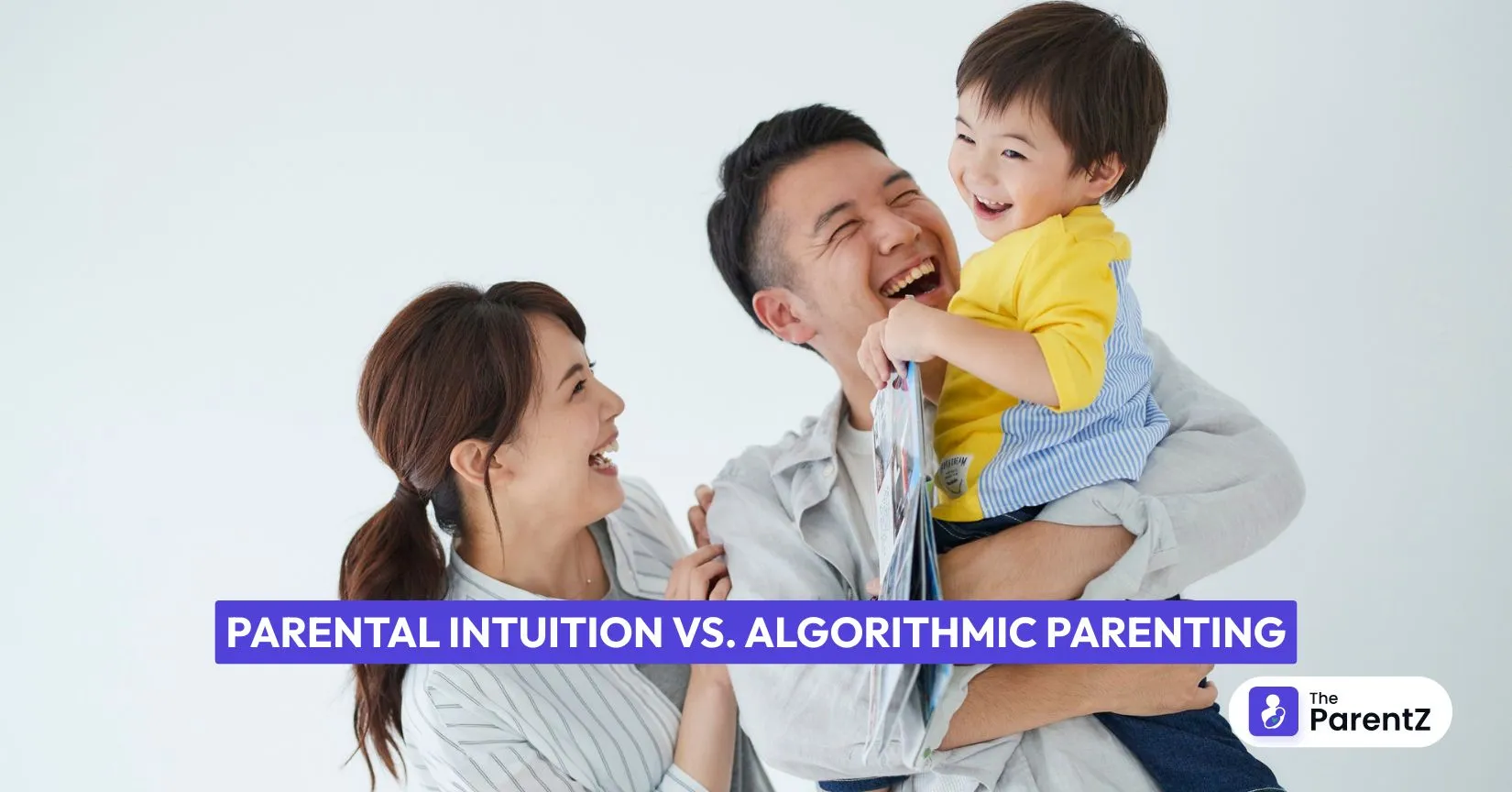It's 2 AM. Your baby is crying. Again. You've tried everything—feeding, changing, rocking. Nothing works. Maybe it's gas? Teething? Or something you're completely missing?
So you grab your phone. As the blue light illuminates your exhausted face, you type: "Why won't my baby sleep?" And just like that, you're down the rabbit hole.
Welcome to modern parenting—a world where your grandmother's tried-and-true advice competes with thousands of scientific studies, expert opinions, and algorithm-curated content, all claiming to know what's best for your child.
When Algorithms Meet Instinct
Remember when you thought about introducing bananas to your little one? Seemed simple enough. Your mom gave you bananas. Your grandma gave your mom bananas. But then you searched online and found an article explaining why bananas might cause allergies or digestive issues in some babies. Suddenly, that simple decision became a minefield of doubt.
This is the reality for millions of parents today. The constant tug-of-war between what feels right and what the internet says is right has created a generation of parents who second-guess even their most basic instincts.
The Weight of Information
The average parent today can access more parenting information in a single afternoon than their own parents encountered in their entire parenting journey. This isn't just overwhelming—it's paralyzing.
When a mom in the 1980s noticed her baby had a slight fever, she might have called her mother or pediatrician. Today's mom will do that too—but only after consulting multiple medical websites, parenting forums, and social media groups where every possible worst-case scenario is discussed in excruciating detail.
The internet remembers everything you've ever worried about and serves you more of it. Search about SIDS once, and suddenly, your feed is filled with sleep safety articles. Look up "picky eating solutions," and algorithms will assume you need a constant stream of nutrition advice.
The Doubt Spiral
"My mother put me to sleep on my stomach, and I turned out fine."
"We all played outside unsupervised until the streetlights came on, and nobody called CPS."
"Nobody worried about screen time when we were growing up."
These thoughts creep in, and right behind them comes the doubt. Were our parents wrong? Careless? Or is modern parenting overthinking everything?
The truth is nuanced. Previous generations weren't careless—they made decisions based on the best information available to them at the time. And today's parents aren't overthinking—they're trying to navigate an unprecedented flood of sometimes contradictory information.
Why This Matters Now More Than Ever
This struggle between intuition and algorithm-approved parenting is intensifying for several reasons:
- Information overload: The sheer volume of parenting advice has exploded exponentially.
- Isolated parenting:- Many families live far from relatives who might otherwise provide perspective and support.
- Algorithm bias:- Search engines and social media don't always surface the most accurate information—they surface the most engaging content, which often plays on parental fears.
- Parenting in public: Social media has made parenting a spectator sport, with every decision potentially subject to public judgment.
- Heightened stakes: We're increasingly told that every parenting decision impacts our children's future success and well-being.
Finding Your Way Forward
So, how do we navigate this tension between timeless parental intuition and the modern algorithm-driven information landscape?
Build Your Inner Circle
Create a small, trusted network of parents, healthcare providers, and, yes, even select family members whose advice resonates with your values. Having real humans to talk to provides context that algorithms can't.
Question the Source
Not all online information is created equal. Government health websites, major medical institutions, and peer-reviewed research deserve more weight than anonymous forum posts or sites selling products.
Notice the Fear Factor
Be wary of advice that plays on fear. Good information educates; it doesn't terrify. If content makes you feel panicked rather than informed, that's a red flag.
Honor Generational Wisdom (Selectively)
Our parents and grandparents got many things right. They raised us with love and did their best with what they knew. Some traditional practices have stood the test of time for good reason. Others have been improved upon with new knowledge. Evaluate with an open mind.
Trust Your Knowledge of Your Child
Algorithms know patterns. You know your child. You've observed their unique temperament, preferences, and responses since day one. That knowledge matters enormously.
Conclusion
Perhaps the answer isn't choosing between intuition and information but finding a thoughtful balance. The most confident parents aren't those who blindly follow either tradition or trending hashtags—they're the ones who gather information, consider their unique child and family situation, and then make decisions they can stand behind.
Remember that parenting has never been about perfection. It's about presence, adaptation, and love. In a world of endless information, sometimes the wisest choice is to put down the phone, look at your child, and ask yourself: "What does this moment, with this child, truly need?"
That question might lead you to your best answer.





Be the first one to comment on this story.